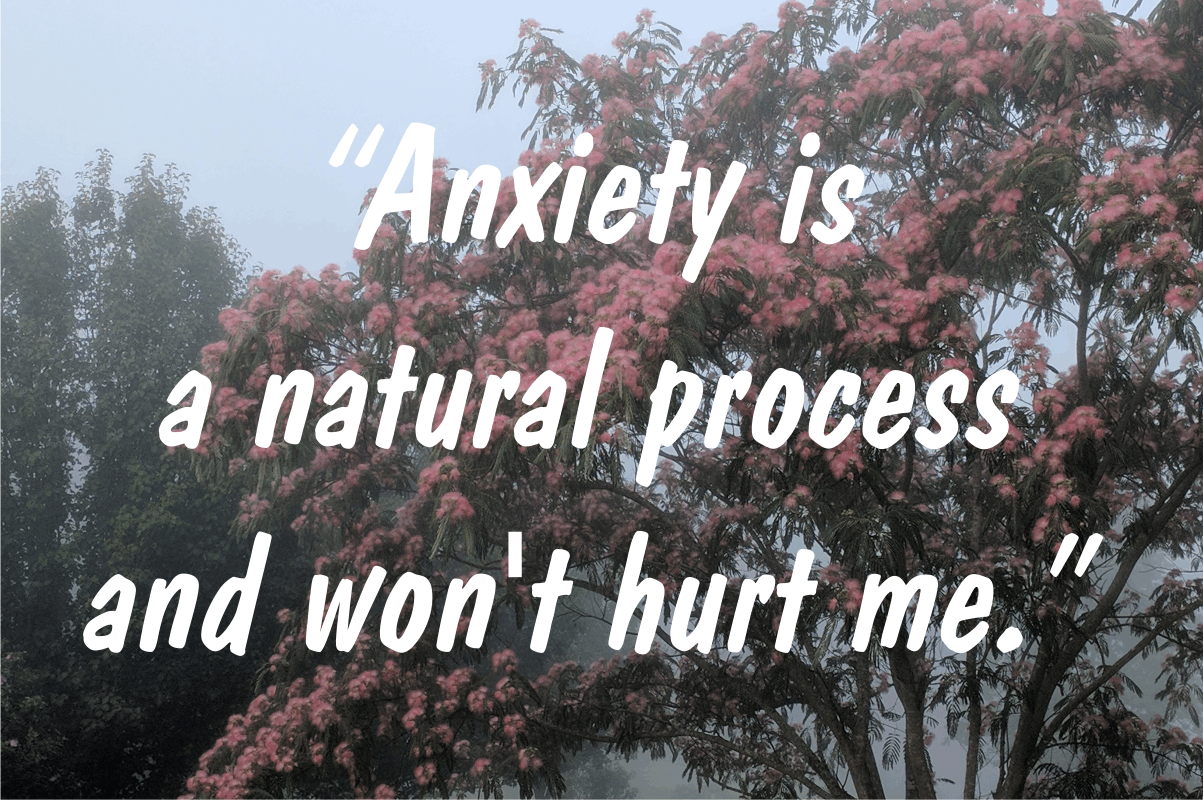










Popular Articles
Crazy-Makers: Dealing with Passive-Aggressive People
Why Are People Mean? Don't Take It Personally!
Struggling to Forgive: An Inability to Grieve
The Secret of Happiness: Let It Find You (But Make the Effort)
20 Steps to Better Self-Esteem
7 Rules and 8 Methods for Responding to Passive-aggressive People
What to Do When Your Jealousy Threatens to Destroy Your Marriage
Guide to How to Set Achieveable Goals
Catastrophe? Or Inconvenience?
Popular Audios
Audio Version of Article: Crazy-Makers: Passive-Aggressive People
Audio Version of Article: Why Are People Mean? Don't Take It Personally!
15 Coping Statements for Panic and Anxiety
by Monica A. Frank, PhD
Coping statements can be part of your strategy to manage anxiety. What are coping statements? When you struggle with anxiety you are usually engaging in fearful and/or inaccurate self-talk which tends to increase the anxiety. The purpose of coping statements is to counter this anxious self-talk.
This series provides an explanation of some common coping statements. The best way to use them is to identify the ones that are most calming to you and repeat them over and over when you are anxious sort of like a mantra. Combining a single statement with taking slow breaths can be particularly helpful.
Coping statement #1: “Anxiety is a natural process and won't hurt me.”
For those with anxiety disorders, Panic Disorder especially, the anxiety symptoms feel so out-of-control it seems that something must be terribly wrong. As a result, they become fearful of the anxiety symptoms thinking they might be having a heart attack or some other physical ailment, will faint and hurt themselves, or will lose control in some way. The obsessive focus on even minute expression of symptoms due to these beliefs cause increased anxiety and even panic.
Frequently, those with these beliefs are not very in tune with their physical self because such body awareness can trigger the fears. This fear of bodily sensations can cause them to reject useful management tools such as breathing methods or relaxation. Such tools rely on heightened awareness of the body which can be uncomfortable initially.
Yet, understanding what anxiety is and developing greater body awareness based on that understanding can help reduce symptoms. In particular, knowing that anxiety is a natural process meant to aid us when confronted by a threat can be reassuring because a normal system of the body isn't meant to cause harm. The various symptoms experienced with anxiety are due to the arousal of the autonomic nervous system which prepares us to react to a threat.
However, if you or your child have never had anxiety before, it is important to obtain a proper diagnosis from a physician. Since the autonomic nervous system can be activated due to any type of threat, other types of problems can manifest with symptoms of anxiety. Once you know, though, that the symptoms are due to anxiety, you can then take steps such as using a coping statement to help you manage the anxiety.
Also, read:
Describes the biological process of the autonomic nervous system in more detail with particular emphasis on the different systems of the body and how symptoms are manifested.
Explains in greater detail why panic and anxiety is not a danger or sign of imminent harm.
Permission to reprint this article for non-commercial use is granted if it includes this entire copyright and an active link.














